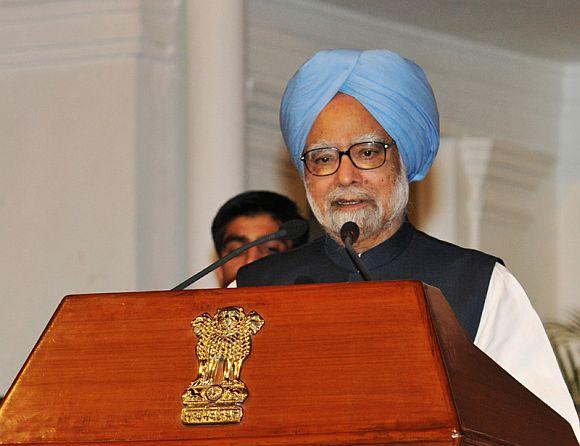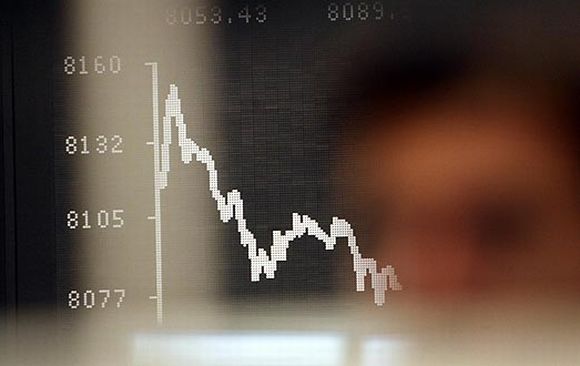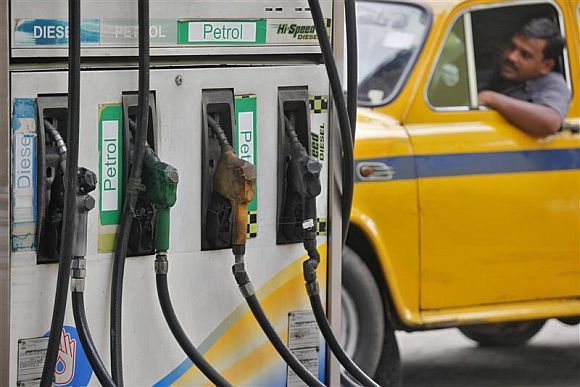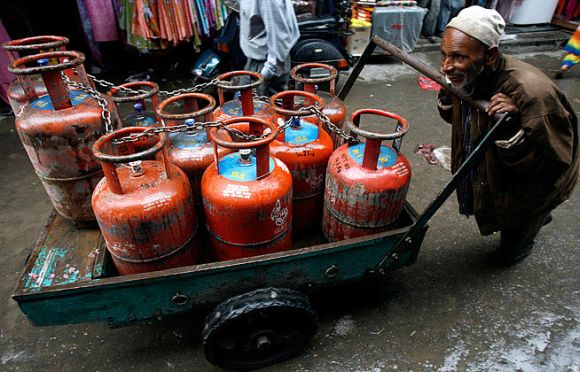Sheela Bhatt
None of Dr Manmohan Singh's arguments to make us understand his government's decisions were new. Sheela Bhatt examines the prime minister's address to the nation
Strengthen my hands! That's what Prime Minister Manmohan Singh told the nation in a special telecast on Friday evening.
The prime minister's 1,427-word speech presented the vintage Manmohan Singh of 1992. He was compelled to speak directly to the people in view of the aggressive opposition to some of the economic measures he has taken, which includes a steep rise in the diesel price.
Dr Singh said, "As Prime Minister of this great country, I appeal to each one of you to strengthen my hands so that we can take our country forward and build a better and more prosperous future for ourselves and for the generations to come."
The prime minister built his case around 'national interest'. He did not give any new arguments.
His logic, conveyed, between the lines, was trying to say something like this but DIDN'T SAY in these many words: MY Dear Brothers and Sisters, you know me, right? I am the same man who brought modern economy through liberalization to this conservative country in 1992 that ended license raj. Give me one more chance. I am trying to repeat my success of 1992. You know well, I know economics. I promise, I will try my best. Forget about scams and all that. Give me just last chance. Let me serve the nation through my knowledge of economics. Trust me, please. Yours Sincerely, Manmohan.
He didn't use these words but his speech attempted to convey this political message.
...
PM's speech: Reading between the lines
Dr Singh evoked his 90s persona that has been admired by urban India. He also raised a few fears while trying to justify his recent decisions.
He said, "The last time we faced this problem was in 1991. Nobody was willing to lend us even small amounts of money then. We came out of that crisis by taking strong, resolute steps. You can see the positive results of those steps."
He didn't want to spread panic, so he added, "We are not in that situation today, but we must act before people lose confidence in our economy. I know what happened in 1991 and I would be failing in my duty as prime minister of this great country if I did not take strong preventive action."
Without mentioning the 'Western pressure', he said, "The world is not kind to those who do not tackle their own problems. Many European countries are in this position today. They cannot pay their bills and are looking to others for help. They are having to cut wages or pensions to satisfy potential lenders."
Also, he didn't spoke softly all the time.
He told people, "Money does not grow on trees" as parents, normally, tell the wayward children.
...
PM's speech: Reading between the lines
While defending the rise of diesel price he said that, "The subsidy on petroleum products has grown enormously. It was 1 lakh 40 thousand crore Rupees last year. If we had not acted, it would have been over Rs 200,000 crore this year." This argument is old one and is not bought either by any of the Opposition parties or by the friendly parties.
One has to mention that Dr Singh was clearly struggling hard to bring back the memory of 1992 and remind people of his role then where he was credited for uplifting the sinking economy.
Dr Singh quite unconvincingly said, "If we had not acted, it would have meant a higher fiscal deficit, that is, an unsustainable increase in government expenditure vis-a-vis government income. If unchecked, this would lead to a further steep rise in prices and a loss of confidence in our economy. The prices of essential commodities would rise faster."
A number of economists and experts have warned that an increase in diesel price will shoot up inflation.
However last week, a former Cabinet secretary strongly justified the hike in diesel price and accepted that it will lead to inflation, but he told rediff.com that the people of India should learn to live with inflation.
...
PM's speech: Reading between the lines
On the issue of LPG gas subsidies, he clarified that there will be no change in the decision.
Now, onwards middle class families of five people who normally consume more than 6 cylinders will have to pay more for the extra cylinders.
The prime minister tried to say that the poor families (who need governmental support) consume only 6 cylinders in a year. On issue of FDI in retail trade he said, "The growth of the organised retail will also create millions of good quality new jobs."
None of his arguments to make us understand his government's decisions were new. The novelty was the last paragraph where he tried to connect to the people.
Dr Sanjaya Baru, former media advisor to Dr Singh, told rediff.com, "I found that the PM was very frank. He was saying that he is trying to prevent the crisis. He said his recent decisions are preventive in nature. He also reminded us that every country has a problem. There is a real danger of downgrading. He said that I am determined to see that India will not be pushed into that situation. So, he said, 'strengthen my hands!'."





article